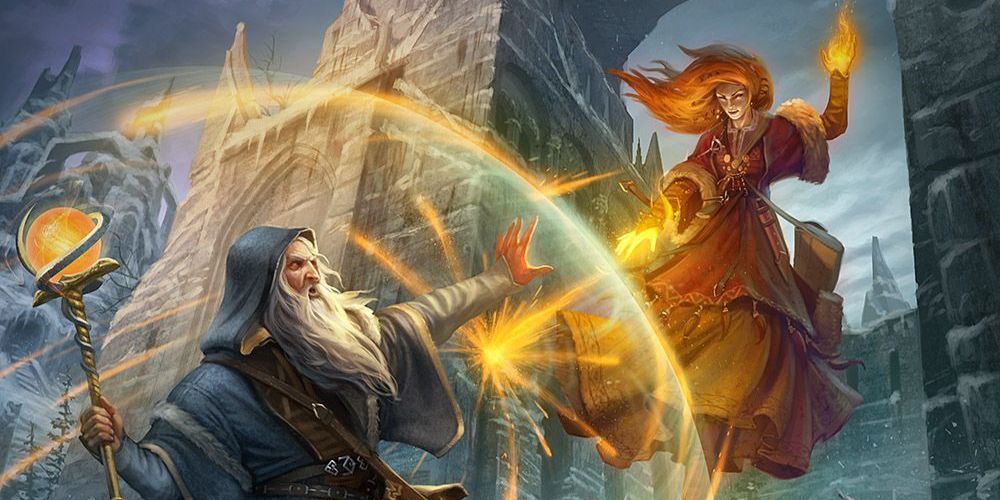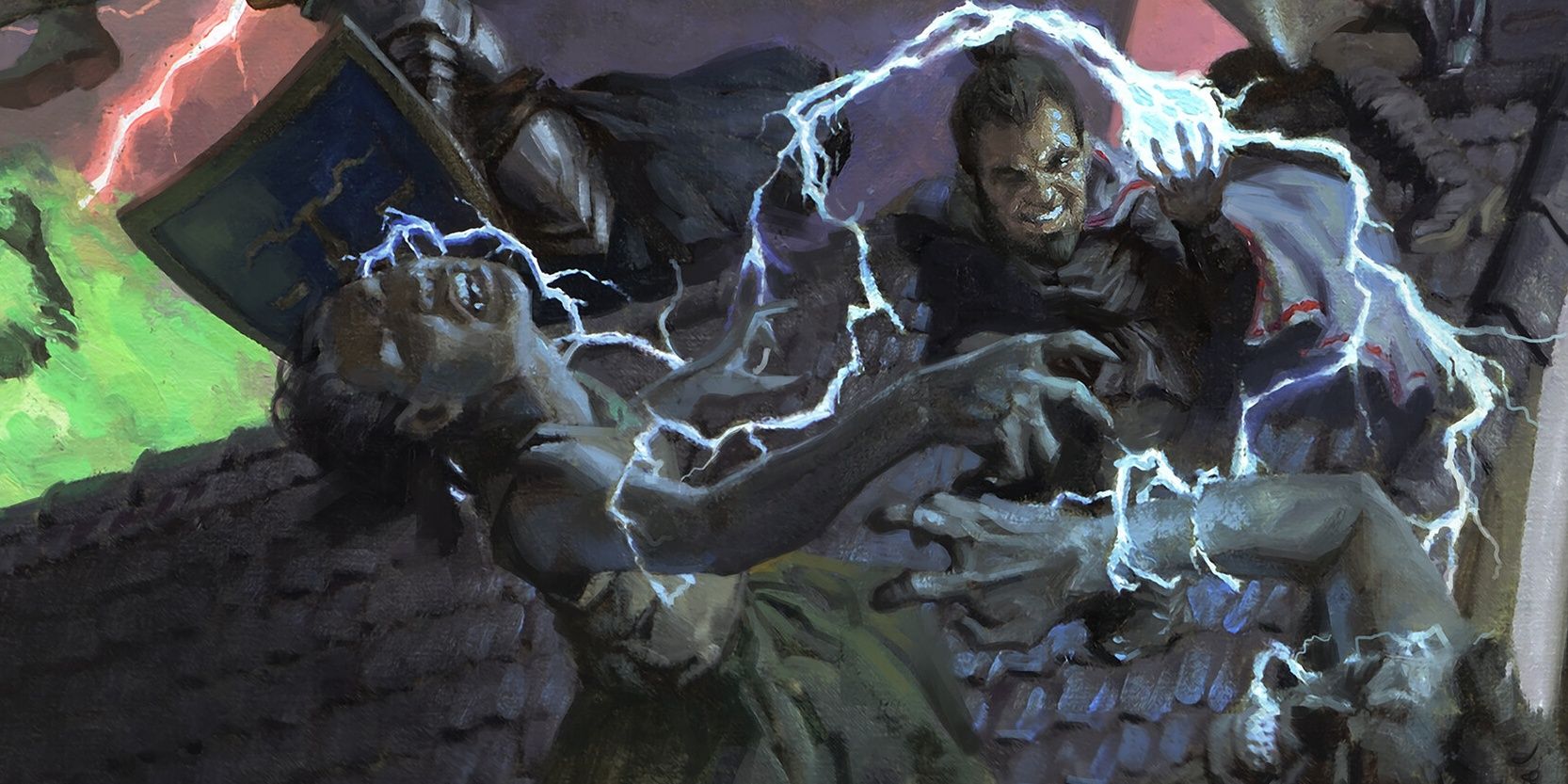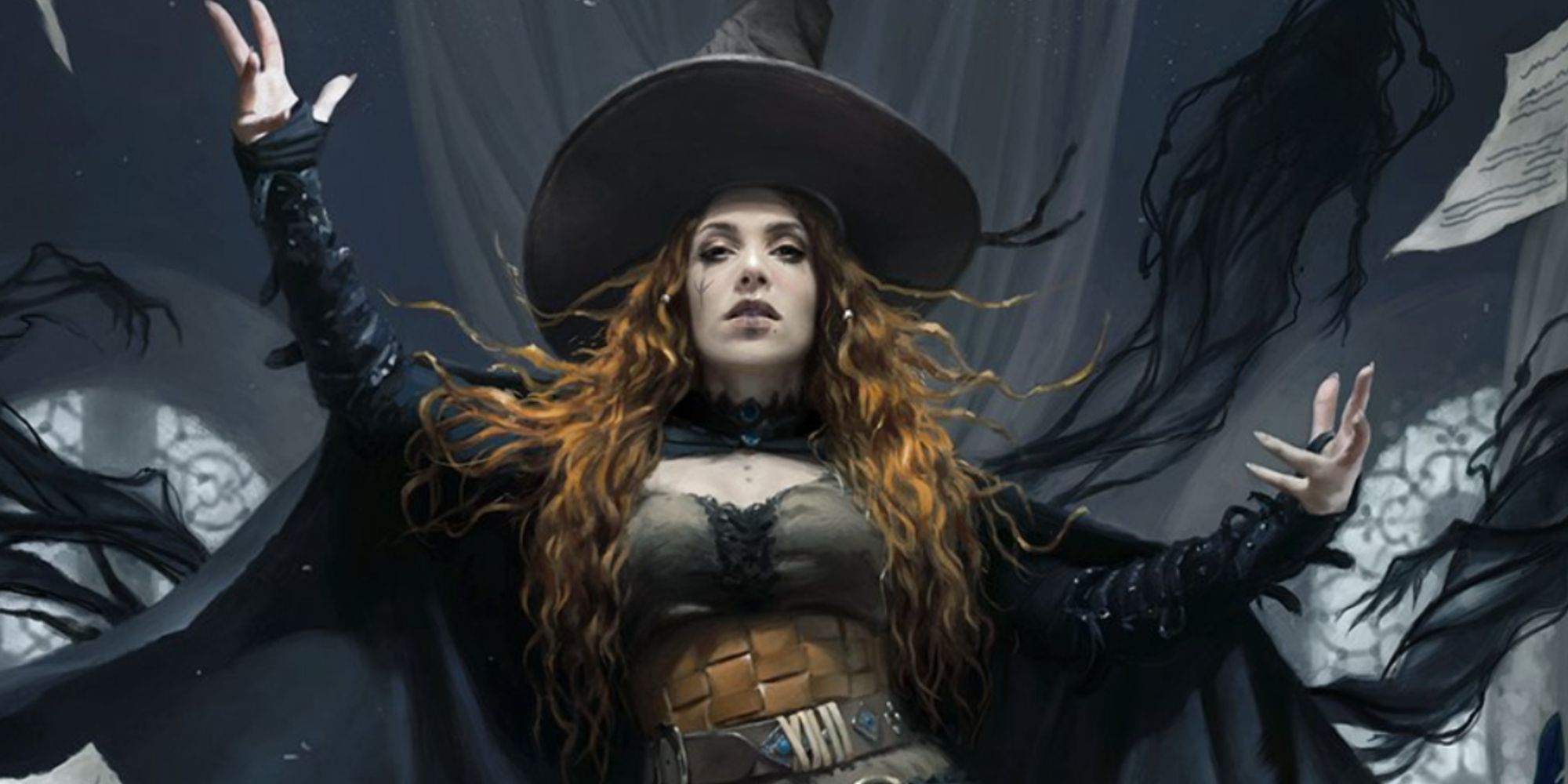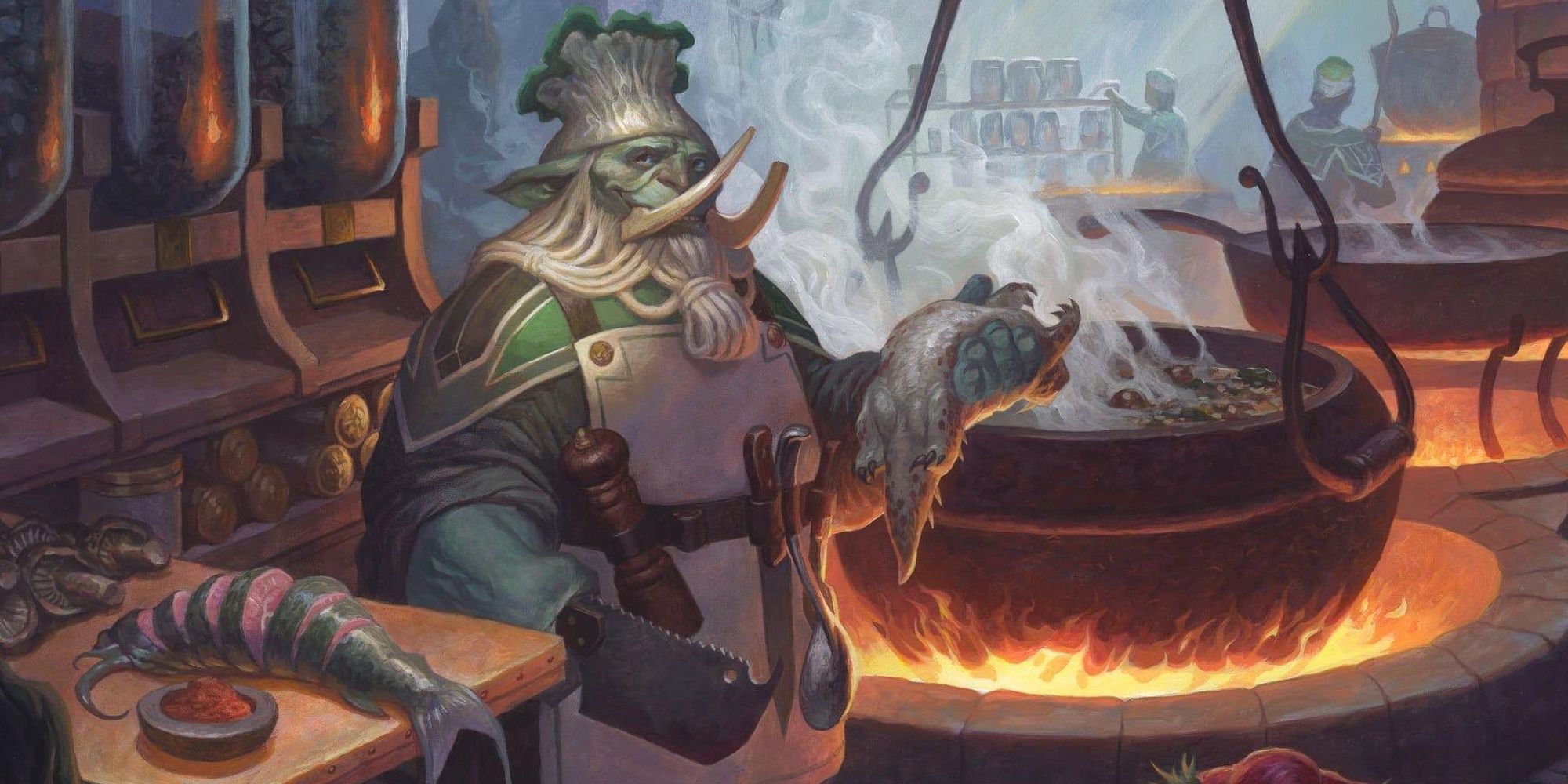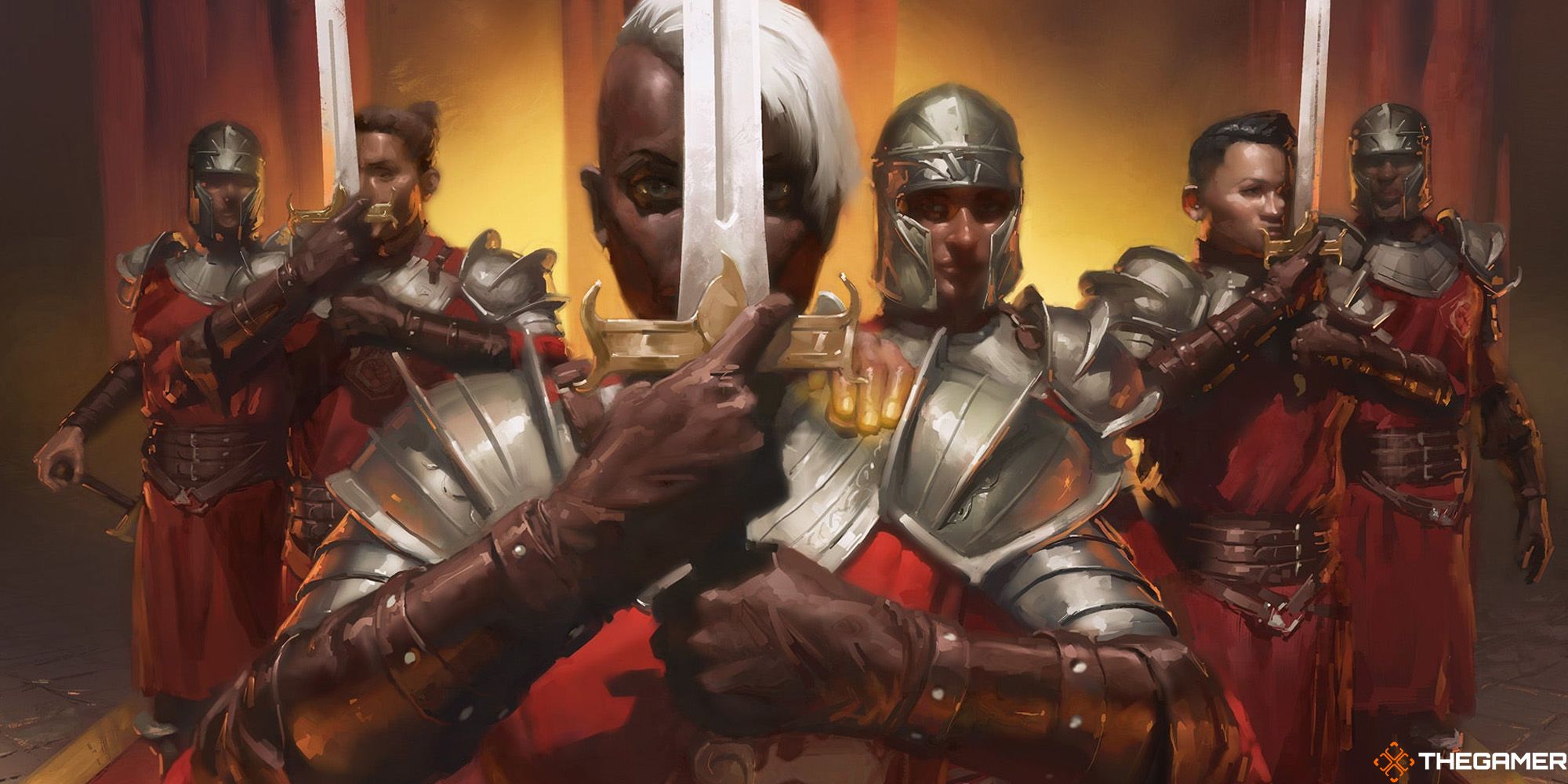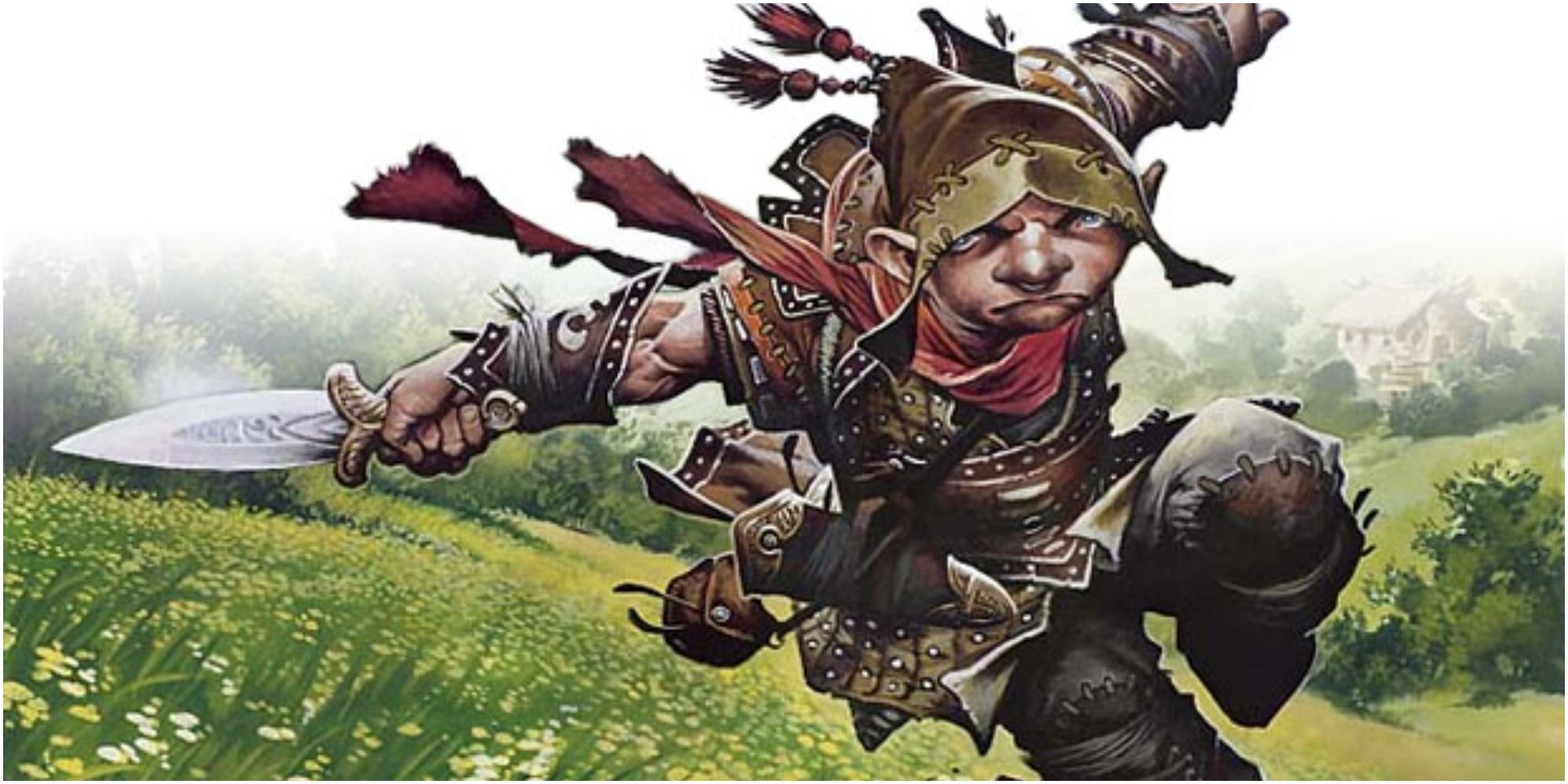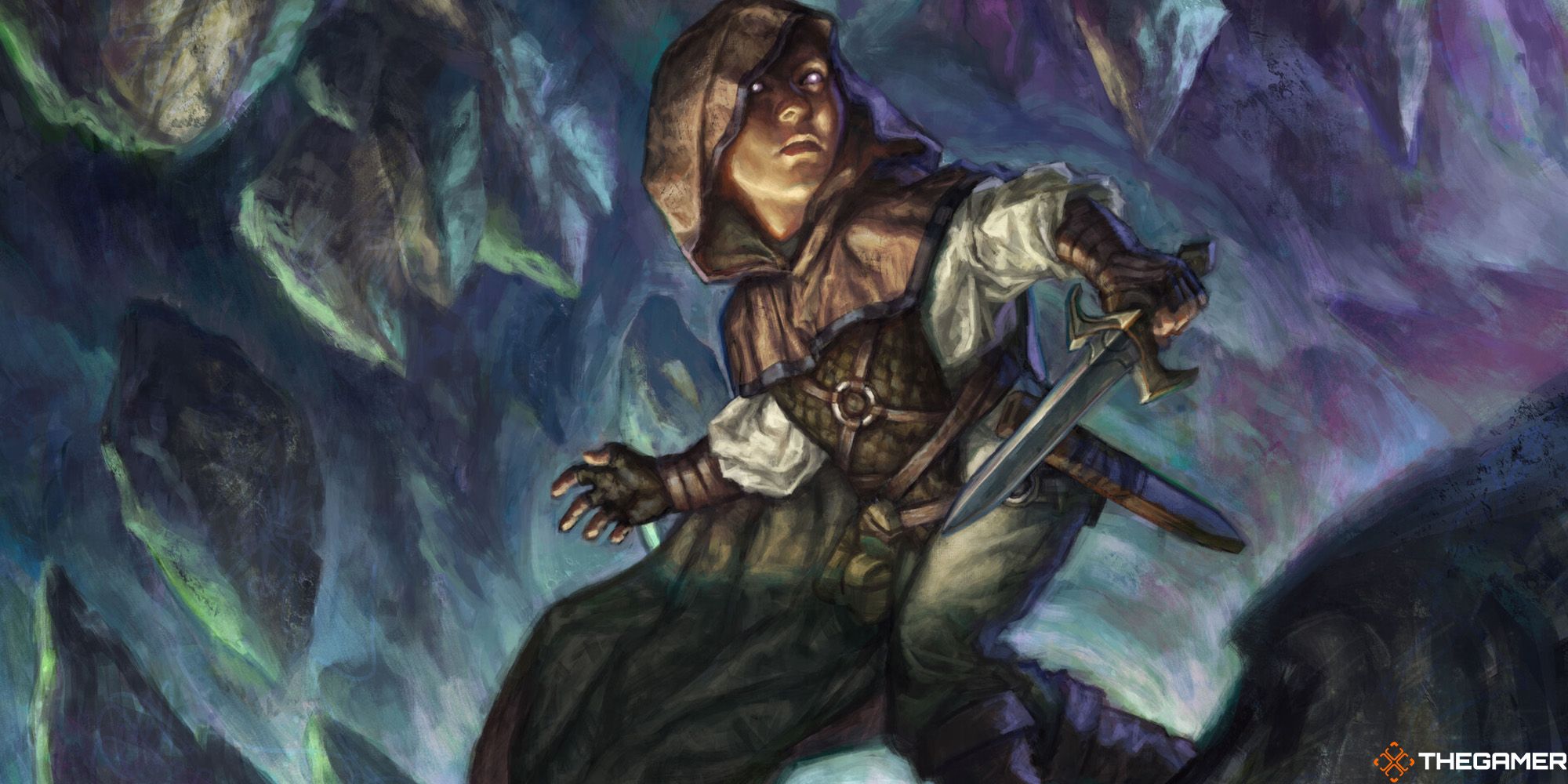So, you want to play Dungeons & Dragons and you have a group of mischievous friends that you have to babysit. Being a support character can be a wonderful time in a game such as D&D, even with all the pressure of keeping your friends alive. You also have many classes and races that thrive on such a task, such as the druids, bards, clerics, and even classes like sorcerers, paladins, or wizards, depending on your build.
To help you build your mighty support PC (Player Character), you have many feats to choose from, that you can pick on specific levels listed in the Player's Handbook. These feats can greatly change how your character works, and even give you some perks for other situations as well.
10 War Caster (Player's Handbook)
Don't let the "war" thing deceive you; this feat can be useful for any spellcaster, including supports. While the ability to do an opportunity attack with a spell is more interesting for damaging roles, two important parts of this feat will come in handy a lot.
First, you don't need a free hand for somatic spells, allowing you to take care of your friends without making yourself vulnerable. Second, you'll have an advantage every time you need to do a concentration saving throw, which will help you a lot a keeping your spells going. Basically, shutting you down will be harder.
9 Resilient For Constitution (Player's Handbook)
Though it doesn't give as many perks as the war caster, resilient is a rather versatile feat since you can use it for any ability score. Basically, when you get this feat, you choose one of your ability scores. It'll be increased by one point and, from now on, you'll be able to add your proficiency bonus on said ability score every time you do a saving throw.
This one matches pretty well with Constitution, so you will have a higher bonus to keep your concentration on. If you're willing to spend two feats, this one and war caster together will make it extremely hard for you to ever lose your concentration.
8 Healer (Player's Handbook)
A good feat for when you want to heal someone, but you don't have or want to use a spell slot in the process. With this one, you can use a healer's kit to heal someone for an equivalent of d6+4+their maximum amount of hit dice.
If they're dying, it can not only stabilize them but regain their consciousness by having them back with one hit point. It's also an interesting option for the non-support players of the group, so they can help you in case you're the one who has fallen.
7 Metamagic Adept (Tasha's Cauldron Of Everything)
Considering your support character isn't a sorcerer, you can still mix some of their perks with other classes through this feat. Metamagic adept gives you two sorcery points and access to two metamagic options, which you can choose based on your build.
From being able to cast single target buffs and heals on more than one person, or being able to cast cure wounds from a distance, it can make your character a lot more versatile. The only downside is that the amount of sorcery points is low and doesn't increase, so it'd mostly be used on low-level spells.
6 Magic Initiate (Player's Handbook)
This feat allows good versatility without actually having to rely on multiclassing (in case you don't want to). Once you get this feat, you choose one class between bard, cleric, druid, sorcerer, warlock, or wizard. You'll get access to two cantrips from the class selected and one first-level spell, which you can use once per long rest.
This allows you to cast interesting cantrips that are usually exclusive, such as having Spare the Dying without being a cleric, and also interesting combinations, like combining Goodberry healing with the disciple of life bonus healing. Just bear in mind the ability scores required for each class, since it'll the one you'll have to use as well.
5 Chef (Tasha's Cauldron Of Everything)
Sometimes all we need to keep fighting is a quality meal. This one will require utensils and ingredients, but it is worth it. First, you can prepare food for a few creatures (four+your proficiency bonus, to be precise) as part of your short rest.
When someone eats your food during the short rest, they get an extra 1d8 hit points if they choose to use a hit die. You can also spend an hour (or a long rest) making treats that last eight hours. Whoever eats them gets temporary hit points equal to your proficiency bonus. Once this feat is chosen, you can also add one to either your constitution or your wisdom ability score.
4 Inspiring Leader (Player's Handbook)
If you have time to prepare yourself for battle, this one will be quite useful. You have to spend ten minutes giving your allies an inspiring speech (your character does, at least. No need to actually talk nonstop for ten minutes), and six creatures of your choosing (you can be one of them, by the way) will receive temporary hit points equivalent to your level plus your charisma modifier.
If you are playing with a class that has high charisma, this feat will make you and your friends a lot more durable in combat. You can use this feat anytime, but to affect the same creature twice, they have to take a rest first.
3 Ritual Caster (Player's Handbook)
What's better than a spell? A spell that doesn't consume spell slots. Rituals are a wonderful method of using interesting abilities - if you have the time to do one of them, that is. With this feat, you choose one of the spellcasting classes, and get access to two ritual spells from said class.
What's more interesting, however, is that you gain a spell book along with this feat, so you can add more rituals if you find one of them in written form (keeping in mind that every ritual has to be on your chosen class spell list and their level can't be higher than half of you level rounded up). So, even though you start with two ritual spells, you have no limit as to how many you can add as you journey through your adventure.
2 Bountiful Luck (Xanathar's Guide To Everything)
Does your support character happen to be a Halfling? If so, this feat is available for the taking! If having the lucky ability trait wasn't enough (where you can reroll attack rolls, ability checks, and saving throws if you get a natural one), this trait allows you to share such power with your friends.
If an ally within 30ft rolls a natural one on the same rolls mentioned before, you can use your reaction to allow your friend to roll the die again. The only downside is that, when you use bountiful luck, you can't use your lucky trait before you end your next turn.
1 Lucky (Player's Handbook)
Not only an ability trait, but Lucky is also one of the best feats in the game and, to be fair, it is useful for pretty much any role, not just supports. It gives you three lucky points, which you can use to reroll attack rolls, ability checks, or saving throws - and, unlike the Halfling's ability trait, you don't need to get a natural one.
Instead, you just choose when you want to reroll, consuming one of the lucky points in the process. You also have the perk to roll a die and force the enemy to take your value when someone attacks you, which works similarly to a disadvantage. Just talk to your DM if this feat is part of your build - some DMs like to ban this feat.


